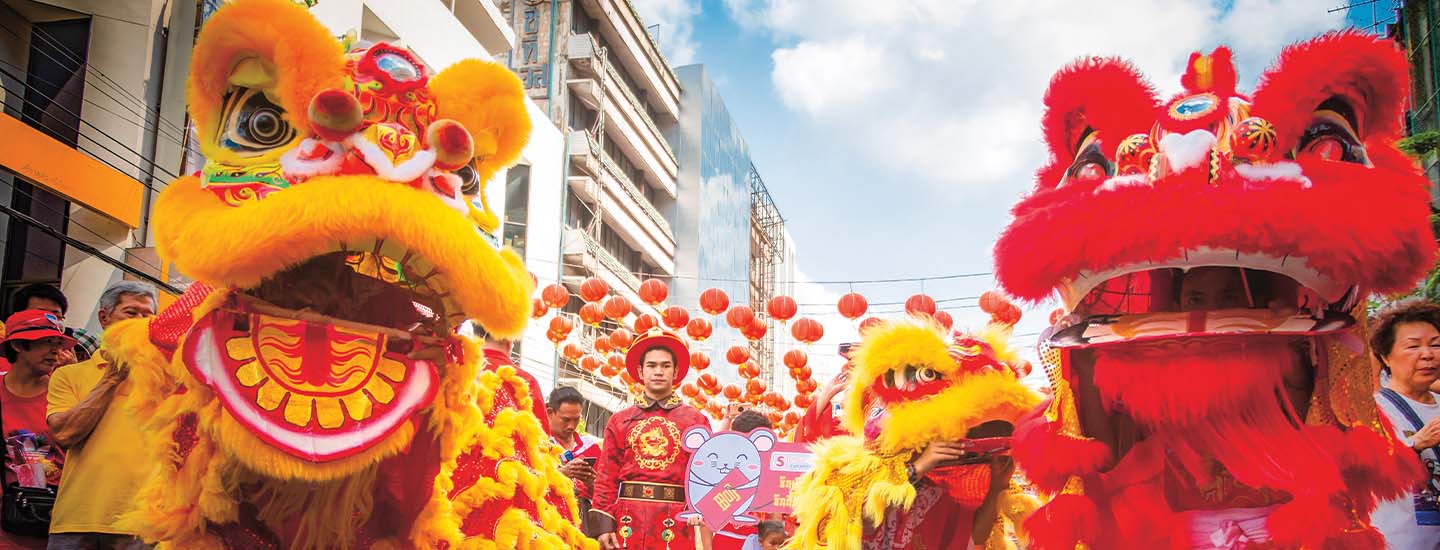This photo doesn’t come with sound, but if it did, you’d be hearing an explosion of percussion: the pounding of drums, the clashing of cymbals, and the clanging of gongs. The costumed performers shown here are dancing to the beat in a colorful parade to celebrate the Lunar New Year in Bangkok, Thailand.
The Lunar New Year is a major holiday among many Asian cultures. It marks the start of the new year based on the cycles of the moon. (The New Year holiday that people celebrate on January 1 follows the Western calendar, which is based on the sun.)
The annual Lunar New Year celebration begins on the day of the first new moon of the lunar calendar. It ends 15 days later, when the first full moon arrives. The calendar date on which those days fall varies. This year, the Lunar New Year starts on February 1.
People in Asian communities honor their heritage during the holiday by holding special dinners and exchanging gifts. They also put on dances and parades, often with elaborate dragon or lion costumes.
In the parade shown above, pairs of performers are dressed up as lions for a traditional lion dance. They mimic the big cats’ movements—leaping, tapping their paws, and moving their heads.
The ceremonial dance has special meaning. According to tradition, the lion dance keeps away evil spirits and brings about prosperity and good luck.

